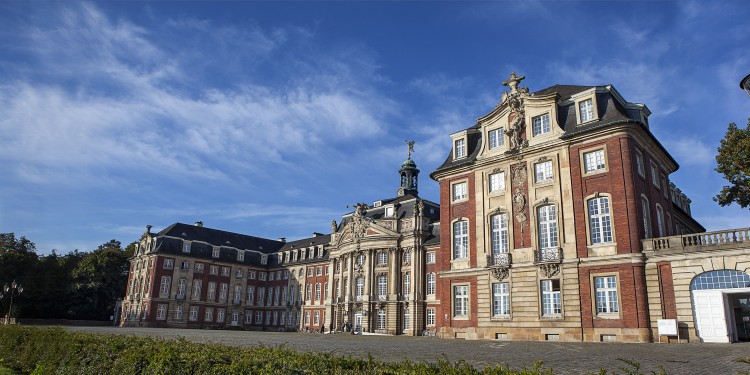
Excellence Strategy: Threefold success for the University of Münster
A threefold success for the University of Münster in the Excellence Strategy: in a preliminary decision, an international committee of experts has assessed three of the four draft proposals submitted by the University for Clusters of Excellence as being promising. The committee has called on each of the research teams to submit detailed applications for funding by 21 February 2018. The final decision will be made in September next year. "This is a very pleasing result", says Rector Prof. Johannes Wessels, "and it is an excellent basis for progressing the University’s strategic orientation with regard to its research activities. With their drafts, the departments involved in the applications are in a very good position for a successful conclusion."
With this interim result, the University has also laid the foundation for a possible application in the Universities of Excellence funding line. In order to submit such an application in December 2018, a university must be able to exhibit at least two Clusters of Excellence. "This interim result is a great compliment for Münster University", adds Prof. Monika Stoll, Vice-Rector for Research. “It shows once again that our strength lies in interdisciplinary research. Innovative research often begins at the interfaces between disciplines. The positive assessment accorded to the drafts proves that precisely this focus is the path that leads to success."
The actual applications deemed by the independent experts as being promising are the follow-up applications submitted by the two Clusters of Excellence already running at Münster University – "Cells in Motion" and "Religion and Politics" – as well as the first-time application entitled "Mathematics Münster: Dynamics – Geometry – Structure". The coordinators of the CiM Cluster are Prof. Lydia Sorokin, Prof. Volker Gerke and Prof. Michael Schäfers from the Faculty of Medicine. The spokesperson for the "Religion and Politics" Cluster is Prof. Detlef Pollack, a sociologist of religion, while Prof. Christopher Deninger and Prof. Mario Ohlberger are the spokespersons for the new Mathematics Cluster being planned. The "Molecules and Interfaces" application submitted by the Departments of Physics and Chemistry & Pharmacy failed to secure the approval of the experts.
Background information: The aim of the Excellence Initiative, which was adopted by the federal and state governments in Germany on 23 June 2005, is to strengthen Germany’s position as a research location, to further improve its international competitiveness and to raise the visibility of its top-level research. The current Excellence Strategy is a further development of the original programme.
According to details supplied by the German Research Foundation, 63 universities originally submitted a total of 195 draft proposals in this round. The experts appointed by the Joint Science Conference then selected 88 Cluster applications from 41 universities for the final round. At the end of the competition, and beginning in January 2019, 45 to 50 Clusters are due to receive funding totalling around 385 million euros a year. The funding period is seven years, with the possibility of a second funding period – likewise totalling seven years – if a follow-up application is successful.
